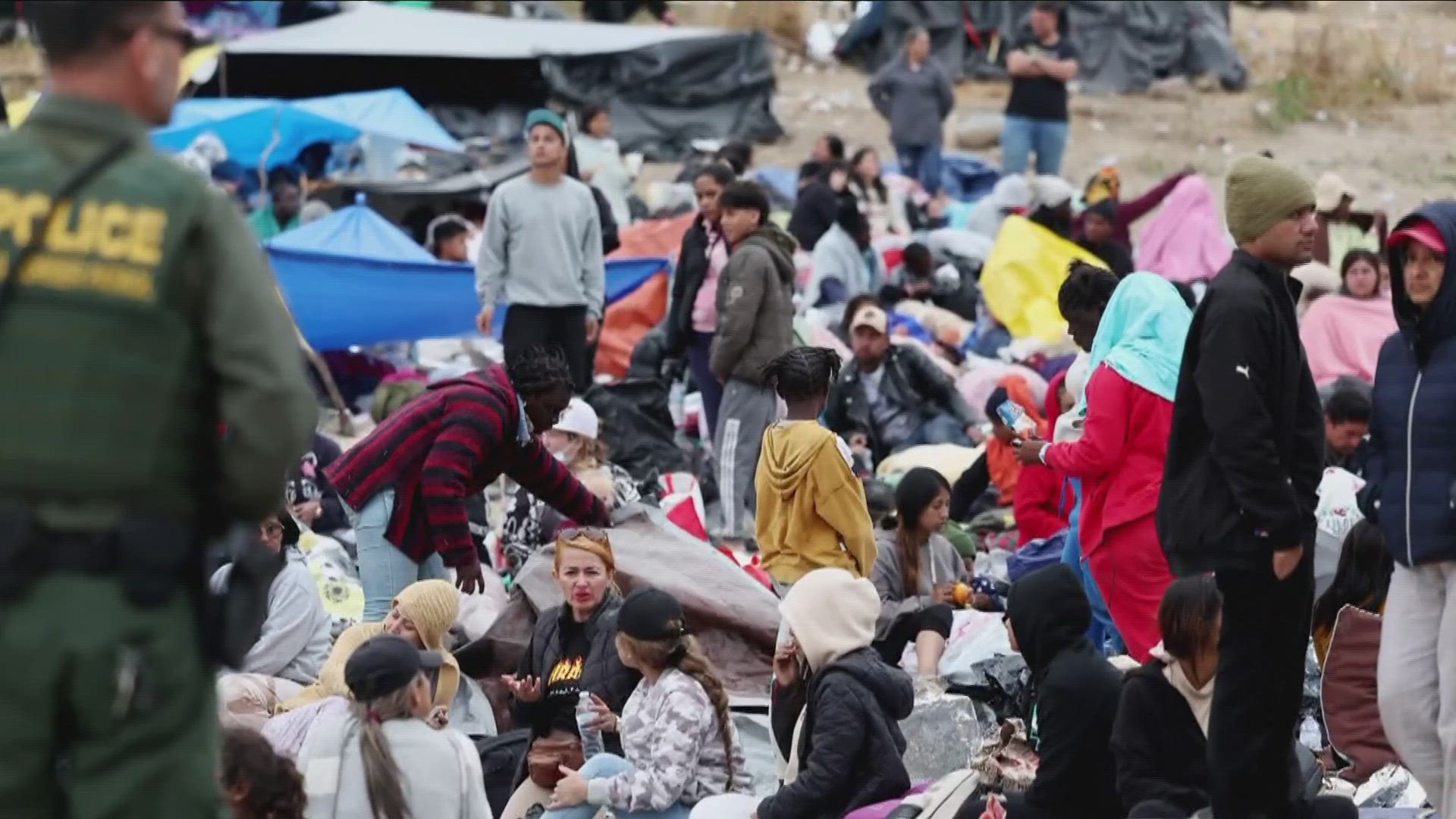BUFFALO, N.Y. — Reaction continues to pour in over the ongoing migrant crisis. It includes Allegany County, the seventh county in New York State issuing a state of emergency Friday.
County leaders have said they are taking preventative measures before more migrants are sent to their communities, worried about the burden they could place on already-loaded social services and community groups.
"You know there is a growing concern in New York state that these failed policies are now going to be borne on the rest of us," Chautauqua County Executive PJ Wendel said.
Leaders like Wendel have expressed frustration with the lack of planning and coordination from New York City leaders, the state, and the federal government, which all in some way bear responsibility for individuals being placed upstate.
That is a sentiment shared by Meghan Maloney De Zaldivar from the New York Immigration Coalition (NYIC).
"What went wrong is the lack of support systems from our state and federal government and coordination from New York City," Maloney De Zaldivar said.
"We have the ability to adapt and support this new wave."
But adaptation hasn't happened, Maloney De Zaldivar said, or at least fast enough to make a real impact and potentially help the counties that are responding by banning migrants.
She pointed to cities such as Buffalo that have welcomed migrants, whether asylum seekers or refugees, in the past. The process had worked previously, Maloney De Zaldivar said.
The volume of migrants encountered at the southern border, however, has been at record highs in recent months, according to Customs and Border Protection data.
But those numbers are trending downward, CBP said Friday.
Since the COVID-era Title 42 was lifted, there were an average of 4,400 encounters between ports of entry per day, according to agency data.
"We have not seen any buses arrive from New York City to Buffalo at this point, but what we have seen is dramatic differences to folks' responses, and that really falls on lines of who is coming," Maloney De Zaldivar said.
Rather than working together to prepare, she said groups such as NYIC have been in constant "response mode."
Gov. Kathy Hochul said Friday the search for state-owned housing for migrants was continuing. The governor had previously mentioned SUNY campuses were being considered but added DEC offices and DOT facilities to that list and said the state was focused on "welcoming communities."
No final decisions have been made, however.
"We'll be making some announcements about locations, and we're working with the [NYC Mayor] because they're responsible for ultimately deciding where people go but our job is to provide them some options," Hochul said.
The governor added that she had met with New York City Mayor Eric Adams and President Biden this week to talk about building a response. Hochul said she wants to speed up the process for migrants to gain work status, which could better their situation wherever they are placed.
The migrants being relocated upstate had originally been placed in New York City, but space has been running out. The city was allocated $1 billion in the state budget, i.e. taxpayer dollars, to pay for services and housing amid the ongoing crisis.
The governor sought to clarify Friday that the money wouldn't stay in New York City if the migrants leave, however.
"Whether it's in a hotel if it is a campus, the money follows them. The money will cover the costs of all the services they will need, and I don't think a lot of people know that yet. I think they believe it will be born by the local community that's not the case here," Hochul said.
New York Republican leaders have since requested assurance from the governor that will be how it works. 2 On Your Side will also be tracking the money.
That upfront cost may not sit well with some New York taxpayers but Maloney De Zaldivar believes the investment in getting migrants on their feet is worth it.
"We've seen the positive impacts in our communities. It's huge from recovering population decline to revitalizing our neighborhoods, to starting small businesses," she said.

